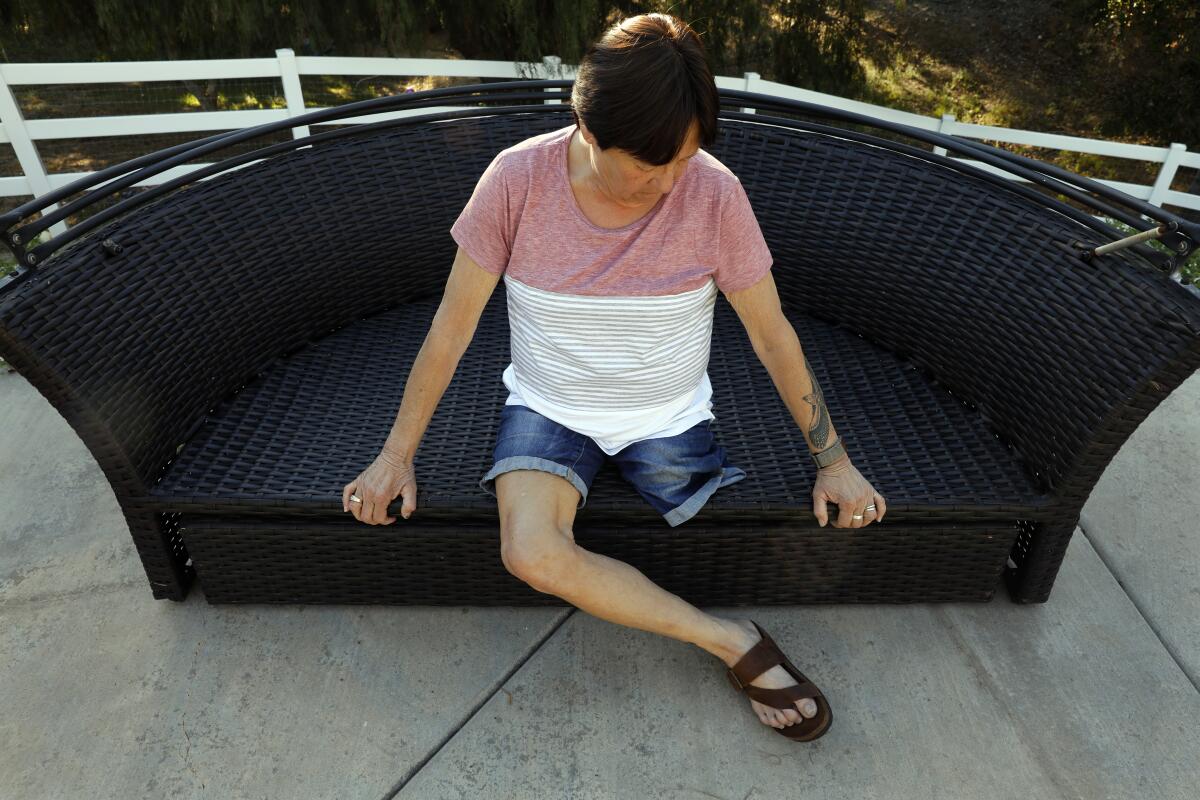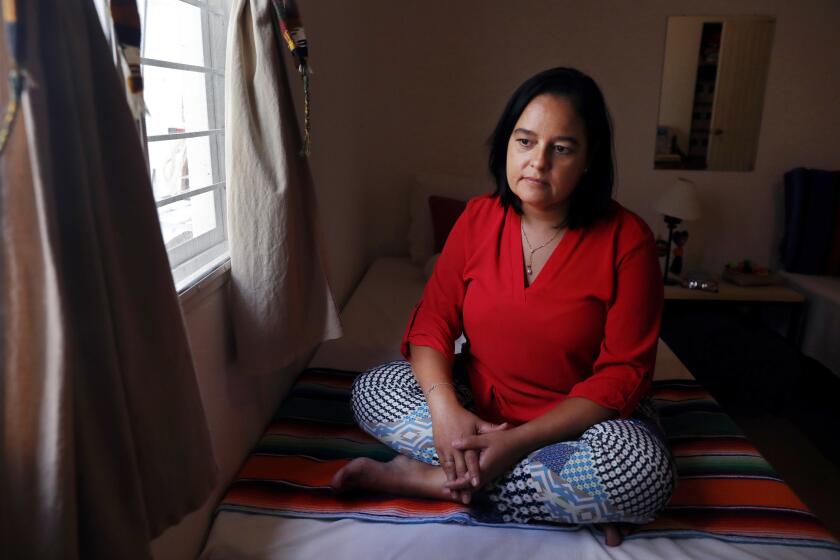Editorial: California must do more to get bad doctors out of the profession

Californiaâs system for getting bad doctors out of the profession is obviously not working.
If it were, we would not read that a Bakersfield doctor got his license back after pleading no contest to a criminal charge of sexual exploitation by a physician. Nor would a Victorville doctor who inappropriately touched two teenage patients during exams still be allowed to practice. Those examples were detailed in a Times investigation last month that found the Medical Board of California has since 2013 reinstated 10 physicians who lost their licenses for sexual misconduct.
A few months earlier, The Times reported that the medical board has consistently allowed doctors accused of negligence to keep practicing â leaving some patients dead, paralyzed, brain-damaged or missing limbs.
The California Medical Board has reinstated a number of doctors who sexually abused patients, a Times investigation found.
And a national ranking released last year by Public Citizen, a group that advocates for safe and affordable healthcare, shows that California does a poor job of seriously disciplining doctors, compared with most other states. It ranked Californiaâs Medical Board 33rd in the nation, in large part because it gives many doctors a slap on the wrist instead of revoking their licenses in egregious cases.
Even the group that lobbies for doctors realizes that itâs time for a change. The California Medical Assn. â which has a track record of neutering proposals to reform how doctors are regulated â is putting its political muscle behind legislation to permanently ban doctors who are convicted of sexually abusing patients from practicing medicine in the state.
Thatâs one piece of the solution, and it deserves lawmakersâ support. But it should not be the only change legislators and Gov. Gavin Newsom make this year to ensure the safety of Californians seeking medical care.
They must also embrace more sweeping reforms that put patient safety at the center of how California regulates the medical profession. These should include giving non-doctors more say on the Medical Board of California, lowering the standard of evidence necessary to discipline doctors for misconduct and a robust examination of the fees doctors pay to determine if they are enough to effectively investigate complaints.
The state board, entrusted with crucial decisions over which physicians are fit to practice in California, has bitterly disappointed many. More transparency and public control would help.
Consumer advocates are calling for such reforms, as is the Medical Board itself. The panel tasked with licensing and disciplining doctors is asking lawmakers to make these changes, arguing in a letter to legislative leaders that theyâre necessary âto protect California consumers.â
So far, none of the boardâs many proposals have been introduced in legislation this year.
The board has asked for similar changes in the past, but theyâve been scuttled or watered down. Last year, lawmakers defanged a bill reauthorizing the Medical Board by deleting a provision to add more non-doctors to the panel and reducing the increase in doctorsâ licensing fees. The legislation requires reviewing the fee structure this year to determine if additional increases are necessary. Thatâs important, because the board needs sufficient funding to quickly investigate complaints.
But the Medical Board must not be the only source of potential solutions. An internal whistleblower has asked the state auditor to investigate the boardâs inner workings. The auditorâs office does not disclose whether it launches an audit in response to a whistleblower, but we hope the auditor will take up this request and deliver results that can help inform the Legislature.
The doctors lobby is a major political force at the state Capitol. It gave $750,000 to the California Democratic Party last summer and routinely makes campaign donations to sitting lawmakers. The California Medical Assn. spent $200,000 last year to help elect Assembly member Akilah Weber (D-San Diego), an obstetrician/gynecologist who is carrying the bill to permanently revoke licenses from doctors who are convicted of sexual abuse in criminal court. It spent $765,000 on lobbying last year in Sacramento â more than Amazon, the pharmaceutical industry or the bankers association. Its chief executive and top lobbyist were among the guests at the infamous dinner party with Newsom at the French Laundry during the first year of the pandemic. Spending power and personal connections have given the doctors group outsize influence.
Too often, Californiaâs regulation of the medical profession comes down to a political negotiation between what the medical board wants and what the doctors lobby will tolerate, said Dr. Sidney Wolfe, founder and senior advisor of Public Citizen, who has studied medical boards across the nation.
âSomething as important as this should not be resolved on political grounds. It should be resolved on the health and safety of the patients of California,â he said.
We agree. Lawmakers must remember as they do their jobs this year that a top priority should be patient safety.
More to Read
A cure for the common opinion
Get thought-provoking perspectives with our weekly newsletter.
You may occasionally receive promotional content from the Los Angeles Times.








![[20060326 (LA/A20) -- STATING THE CASE: Marchers organized by unions, religious organizations and immigrants rights groups carry signs and chant in downtown L.A. "People are really upset that all the work they do, everything that they give to this nation, is ignored," said Angelica Salas of the Coalition of Humane Immigrant Rights. -- PHOTOGRAPHER: Photographs by Gina Ferazzi The Los Angeles Times] *** [Ferazzi, Gina -- - 109170.ME.0325.rights.12.GMF- Gina Ferazzi/Los Angeles Times - Thousands of protesters march to city hall in downtown Los Angeles Saturday, March 25, 2006. They are protesting against House-passed HR 4437, an anti-immigration bill that opponents say will criminalize millions of immigrant families and anyone who comes into contact with them.]](https://ca-times.brightspotcdn.com/dims4/default/34f403d/2147483647/strip/true/crop/1983x1322+109+0/resize/840x560!/quality/75/?url=https%3A%2F%2Fcalifornia-times-brightspot.s3.amazonaws.com%2Fzbk%2Fdamlat_images%2FLA%2FLA_PHOTO_ARCHIVE%2FSDOCS%2854%29%2Fkx3lslnc.JPG)



